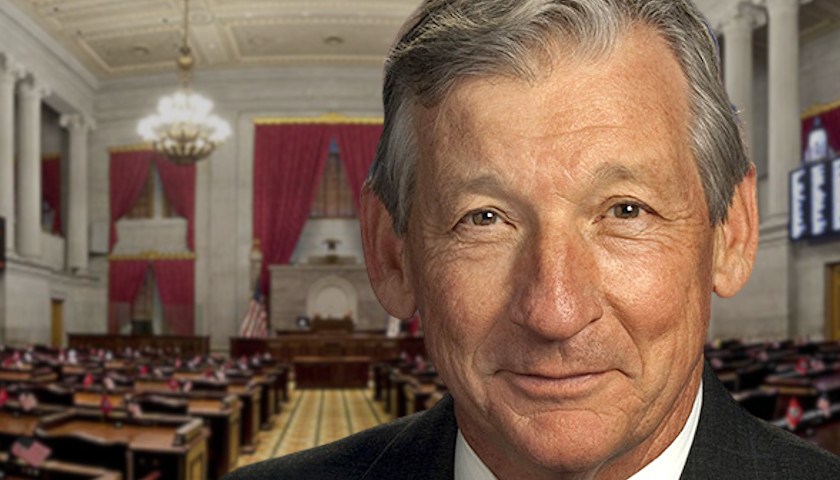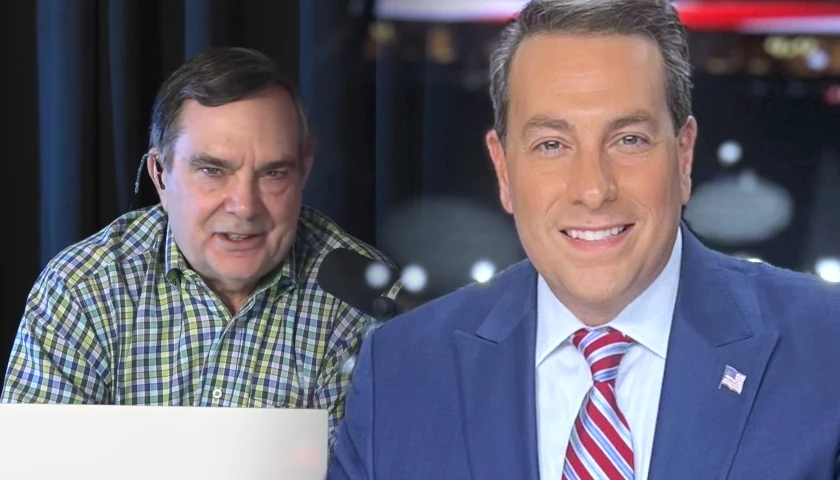The Tennessee General Assembly has been considering whether it should be in charge of selecting U.S. Senate candidates for primaries. On Tuesday, the sponsor of the bill encompassing that proposed change, State Senator Frank Niceley (R-Strawberry Plains), requested that the legislature have until next March to contemplate the bill.
During the Senate State and Local Government Committee hearing on Tuesday, Niceley asserted that the U.S. Senators have gotten out of touch with the state legislature. He explained that this bill would improve the working relationship between their lawmakers in D.C. and the Tennessee Capitol.
“I’ve been in the legislature off and on for 30 years. Been on the Ag [Agriculture] Committee all the way through, been the chairman of the Ag Committee of the House – I’ve never had a U.S. Senator call me before they voted on a farm bill and said, ‘Frank, what do you think about this farm bill that’s coming up?'” said Niceley. “How many times U.S. Senators call you and ask how you feel about anything? They have drifted away from the states. Now, we would be the first to do this. But if 10 states decided to [let their] legislatures nominate their U.S. Senators, that’d be 20 votes in the U.S. Senate, we might possibly save America and the free world. I mean, it’s looking kinda bad up there right now.”
Niceley explained that the bill is steeped in the earliest legal traditions of our country. He said that until 1913, U.S. Senators were elected by state legislatures.
“[W]hen the Founding Fathers wrote the Constitution, they had the U.S. House of Representatives elected by direct election by the people. It was a people’s house, and it was referred to [as such]. The U.S. [Senators] were elected by the state legislatures. And it was referred to as, ‘The States’ House.’ And that worked well for 125 years or so, until 1913. In 1913, we had a progressive movement going on in Washington – Republicans, Democrats both were kind of tied up in this progressive movement. There was a move to go to the direct election of U.S. Senators, and that sounded like a good idea at first. But that shifted us away from a republic and more toward a democracy. And so since 1913 our U.S. Senators have been elected by direct elections, the same as the House. Since that time, they have been less responsive to the state.”
Niceley added that the old method of state legislature appointments to the Senate naturally shortened term limits for U.S. Senators.
“I went back and counted the U.S. Senators from 1913 back to 1813, for 100 years. And then I counted U.S. Senators from 1913 until 2013, and we had twice as many senators in the first 100 years as we did in the last 100 years. Which meant they stayed there half as long,” said Niceley. “Since 1913, the senators have become less and less responsive to the states. Now, the 17th Amendment said that we have to have a popular election of our U.S. Senators. But the 17th Amendment did not say how we nominate our U.S. Senators.”
Niceley added that this would enable U.S. Congressmen to know that they secured the nomination before dropping their congressional seat, as required in order to run for Senate.
In his closing remarks, Niceley requested that the bill be placed as the first item for consideration during next year’s General Assembly.
The Tennessee Star reached out to Niceley’s spokespersons about the specifics behind the necessity to have the state legislature nominate U.S. Senator candidates for primaries. Their spokespersons declined to comment on the merits of the bill, instead referencing the Senate committee’s decision to table the topic until 2022.
– – –
Corinne Murdock is a reporter at The Tennessee Star and the Star News Network. Follow her latest on Twitter, or email tips to [email protected].






Perhaps we could kill two discriminatory offenses with one bill?
Eliminate party control and allow voters to vote for individuals rather than party lines.
That would allow the voters to select their representatives, both House and Senate.
Additionally, it would eliminate many of the opportunities for loyalty-purchase funding.
How impressive to get two great ideas in one article. I refer to Senator Niceley’s proposal to have senators nominated by the legislature and the Faker’s proposal for an electoral college system for state elections. The mistrust most of us feel is that the electoral system – the parties, the media, and the funding – conspires to favor elaborate attention on current situations and the loudest voices in this charade. The hot issues carry the day even if they are false or temporary. The current system also makes senators one soap box higher than members of the House, a large move toward a democracy rather then a republic and one step closer to collapse. The distrust of legislators is not how long they serve but how far removed they are from their constituents and, thus, unaccountable.
Not a serious bill. Else it would not have been delayed until too late to impact 2022 electionsl But I do approve the idea and would gladly support it.
Another better solution would be to institute an Electoral College system in this state, which would stop the three or four largest cesspools from determining elections and other ballot initiatives for the rest of the state. There’s not one state that would not benefit from this change.
Faker – Very interesting idea. I would vote for that.
We have a problem with mistrust in all levels of our government, and I can assure you a move like this would only fuel the fire. I would rather see the term for the senate shortened from six to four years and a term limit on both houses.